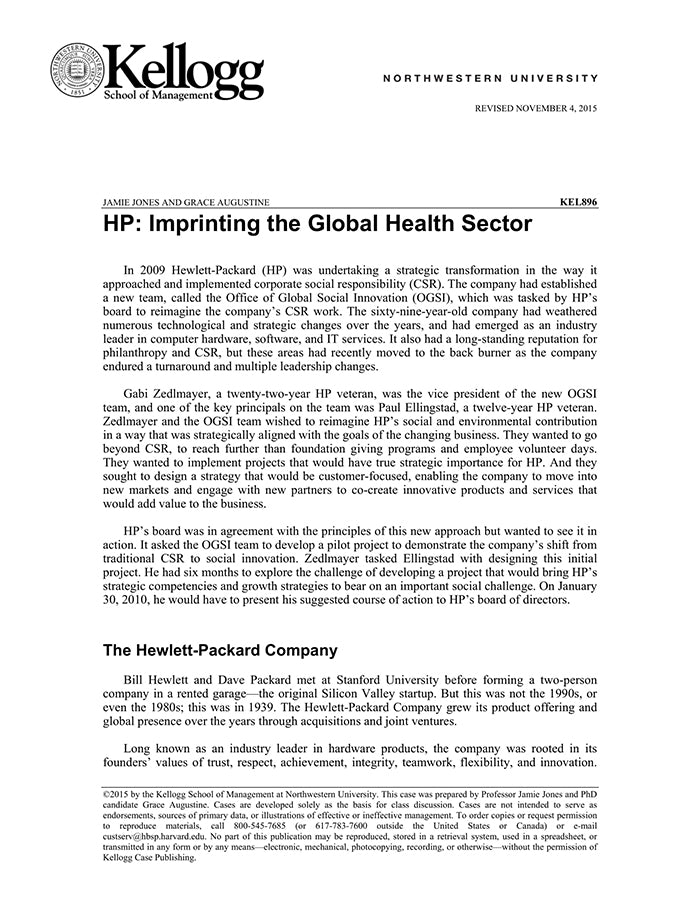HP: Imprinting the Global Health Sector
受取状況を読み込めませんでした
Hewlett-Packard (HP) had a long history of engaging in corporate citizenship, dating back to its founding. By 2009, however, under the leadership of its latest CEO, Mark Hurd, the company had lost its focus on corporate social responsibility (CSR). Hurd instead focused on undertaking a financial turnaround and overcoming other reputational challenges; he viewed CSR and philanthropic efforts as costs rather than as strategic levers. He instituted widespread cost-cutting measures to get HP back on track, including reducing CSR expenditure. The HP board, however, did not want to let CSR go by the wayside; in fact, it wanted HP to reorganize and restrategize its approach to corporate citizenship. The case focuses on this strategic transformation from traditional, cost-center CSR to business-aligned social innovation. It outlines the details of the board's approval of the new strategy, and then discusses how HP employees worked to reorganize their CSR activity. The new team, the Office of Global Social Innovation (OGSI), had to devise a pilot project to demonstrate the new approach. The project under consideration was an engagement that would improve the early infant diagnosis process for testing infants for HIV in Kenya-an area virtually unknown to HP. The case asks students to assess the work of the OGSI team thus far, and to put themselves in the shoes of one team member who had to justify the project to HP's leadership. The case is especially important for demonstrating the most recent shifts across some leading companies regarding how they position CSR, as well as how for-profit leaders can structure partnerships for impact.
【書誌情報】
ページ数:15ページ
サイズ:A4
商品番号:HBSP-KEL896
発行日:2015/3/12
登録日:2015/7/23


